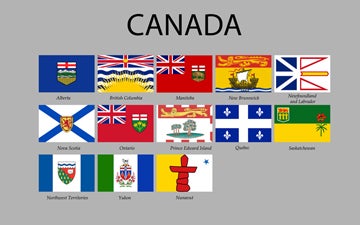When accounting rules change at the (provincial) border

Ontario’s CSRS 4200 framework should be adopted nationally to provide for provincial labour mobility among accountants says James Green of RPA Canada
 |
James (Jim) Green, RPA is owner and general manager of Green & Company, Registered Professional Accountants in Cambridge, Ontario, and secretary of the Society of Professional Accountants of Canada. |
CANADA is moving forward. Provinces are dismantling interprovincial barriers. Nova Scotia’s Free Trade and Mobility Act and Ontario’s Protect Ontario Through Free Trade Act are steps toward seamless movement of goods, services, and labour.
Yet an overlooked area remains: inconsistency in provincial licensing, in this case for compiled financial statements.
Raising a question: Does Canada already have a model that balances public protection with mobility and efficiency?
Yes — Ontario’s framework meets the test and should be adopted nationally.
Michael’s Story
Michael has been preparing financial statements for small businesses in Ontario for 20 years. He’s not a chartered professional accountant, but he’s qualified — trained, insured, ethical, and respected. If needed, Michael can prepare a compilation in accordance with CSRS 4200 (the Canadian standard), and include a disclaimer that no assurance is provided.
Under Ontario’s Public Accounting Act, this isn’t optional — anyone issuing statements for a third party must include the disclaimer and represent compliance with CSRS 4200 — unless they hold a public accounting licence.
But when Michael moved to Nova Scotia, he found the environment confusing — the opposite was true. He discovered he couldn’t issue the assurance disclaimer unless he held a public accounting licence. Instead, he could provide financial information for third-party use, but only plain statements with no explanation of their limits — or perhaps use alternative compilation frameworks.
“If I can’t clarify there’s no assurance, a third party might assume more than intended,” he told me. Michael stopped accepting compilation work — not due to capacity, but because the rules precluded clear, ethical communication.
Sarah’s Experience
In Mississauga, Sarah runs a catering business and needs a loan to purchase equipment. The lender asks for compilation statements, so she hires a registered professional accountant trained in CSRS 4200 — striking a balance between cost and competence.
In another province, hiring someone like Michael might yield identical statements, but without a disclaimer to clarify scope and limitations.
Jasmine’s Perspective
Jasmine works in commercial lending for a national bank, reviewing financials from clients in Ontario, Nova Scotia, and Alberta.
She routinely accepts compilations from CPAs and RPAs. For firms like Michael’s, she relies on her judgment and bank policy — accepting reports case by case based on reputation and track record.
For higher-stakes loans, Jasmine requires assurance — an audit or review — from licensed public accounting firms.
In Ontario, all submissions follow CSRS 4200: standardized, clearly disclosed, and easy to interpret. Other provinces follow suit but Ontario leads by requiring the standard.
Elsewhere, Jasmine sees inconsistency. Some use alternative frameworks; others arrive with no communication at all.
Recently, she reviewed two nearly identical files — one from Ontario, one from Nova Scotia. The Ontario report included the standard disclaimer. The Nova Scotia report was just a set of numbers with no context.
“I shouldn’t have to guess what I’m reading,” she said. “There should be one national rule, regardless of what type of accountant is issuing it.”
The Importance of Compilations
Compilations are explicitly not assurance engagements. That distinction matters.
Historically, public accounting licences have existed to regulate assurance — where the stakes are high and assurance-level reliance is expected. Compilations fall outside that scope. They are used in routine low-risk scenarios — especially small business lending, where a bank wants to see organized financial information with a standard disclaimer.
If accountants are blocked from offering them, costs rise, access shrinks, and accountants’ livelihoods are harmed. It’s not an edge case — it’s the core of what thousands of practitioners do every year.
The Problem: Fragmentation
In Ontario, all practitioners must comply with CSRS 4200 or not issue the report. Elsewhere, rules are inconsistent: some provinces permit alternative standards; others prohibit non-CPAs from providing proper disclaimers; some offer no guidance.
This creates four systemic failures: labour mobility, public confusion, reduced choice, and economic inefficiency.
Ontario’s Approach: A success model
It’s not a free pass — it’s a regulated, enforceable framework. Assurance is reserved for licensed public accountants. But for compilations, the system allows professional discretion and consumer choice. The CSRS 4200 disclaimer is mandated by law and signing it is a legally binding statement of compliance. The enforcement mechanism is criminal and civil law.
Users — commonly banks — can choose whether to accept reports from CPAs, RPAs, or trusted local practitioners. This approach combines access, transparency, and accountability.
And it works.
When CSRS 4200 came into effect in 2021, the Ontario government affirmed that all qualified accountants could continue issuing compilation engagements. The model was reaffirmed in 2024, with regulators stating the accounting regulation continues to serve consumers of accounting services well. This aligns with public protection and represents the good record of an inclusive regulatory environment.
Final Word
Michael’s qualifications didn’t diminish when he moved to Nova Scotia, but his ability to communicate clearly with third parties did.
Ontario’s system protects the public not by restricting who can practice, but by requiring that anyone who does must meet a uniform, enforceable standard. It respects the intelligence of users, delivers compliance, and has a proven track record.
This is how market competition with regulation of high-stakes services should work: the monopoly is kept as narrow as necessary to achieve public protection. It’s simple, efficient, and fair.
Within this framework, the Registered Professional Accountant (RPA) designation plays a vital role. It offers a rigorous, standards-based pathway grounded in ethics, professional conduct, ongoing education, quality management, and mandatory insurance. RPAs are trained in CSRS-4200 and subject to practice review, enhancing public protection and access to reliable, affordable services for clients who need competence, but not assurance.
Of course, if there are lingering doubts about firms like Michael’s and whether their representation of compliance is enough, or that government oversight is preferable despite the assurance disclaimer, there are still better alternatives than a monopoly. As in law with paralegals or medicine with nurse practitioners, a more reasonable policy would be to license professional organizations like RPA to perform compilations within a defined scope. This achieves the same goal while better serving the public and broadening accessible pathways for accountants like Michael. But Ontario’s model proves this isn’t necessary.
To build an integrated Canadian economy, harmonizing compilation standards is essential — advancing labour mobility and economic efficiency without counterproductive regulatory barriers. Ontario’s model offers a practical, proven path to national alignment.
James (Jim) Green, RPA is owner and general manager of Green & Company, Registered Professional Accountants in Cambridge, Ontario, and secretary of the Society of Professional Accountants of Canada. Author photo courtesy James Green. Title image: iStock ID 1043737566.









(0) Comments